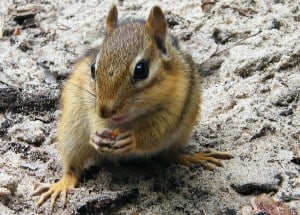Discover the signs of chipmunk activity before it’s too late and protect your garden or farm from these pesky rodents. Chipmunks have a habit of returning to the places they leave their droppings, making them a less than desirable neighbors for gardeners and farmers.
Don’t let chipmunks ruin your hard-earned harvest. Their droppings may be difficult to distinguish from those of rats and other small animals, so it’s important to stay vigilant and keep an eye out for any signs of chipmunk activity. Act fast and safeguard your territory today.
You have to learn your enemy before planning an attack on it. Read my instructions, and get rid of chipmunks in your yard.
Chipmunk Droppings: Easy Extermination Guide
Adorable chipmunks with their fluffy tails and beady eyes may look like cartoon characters, but they can wreak havoc on farms and gardens. Their love for nuts, seeds, and fruits is undeniable, but when these delicacies are scarce, they’ll happily munch on vegetables, plants, fungi, and even bird eggs. While they may be cute, they’re not always welcome guests.
Chipmunk droppings identification
The main problem is that chipmunk feces look similar to other animals. Besides, another problem appears – many people simply don’t believe that these creatures can poop at all. What does chipmunk poop look like? Check out the main peculiarities:
- Size: On average, chipmunk scat is tiny. They are less than 0,40 inches. If you watch chipmunk poop images closely, you will notice that they are even smaller than rats.
- Shape: This poop looks like pellets. The ends are long and pointy.
- Color: it depends on the food that chipmunks eat. Sometimes it is brown; sometimes it can be black.
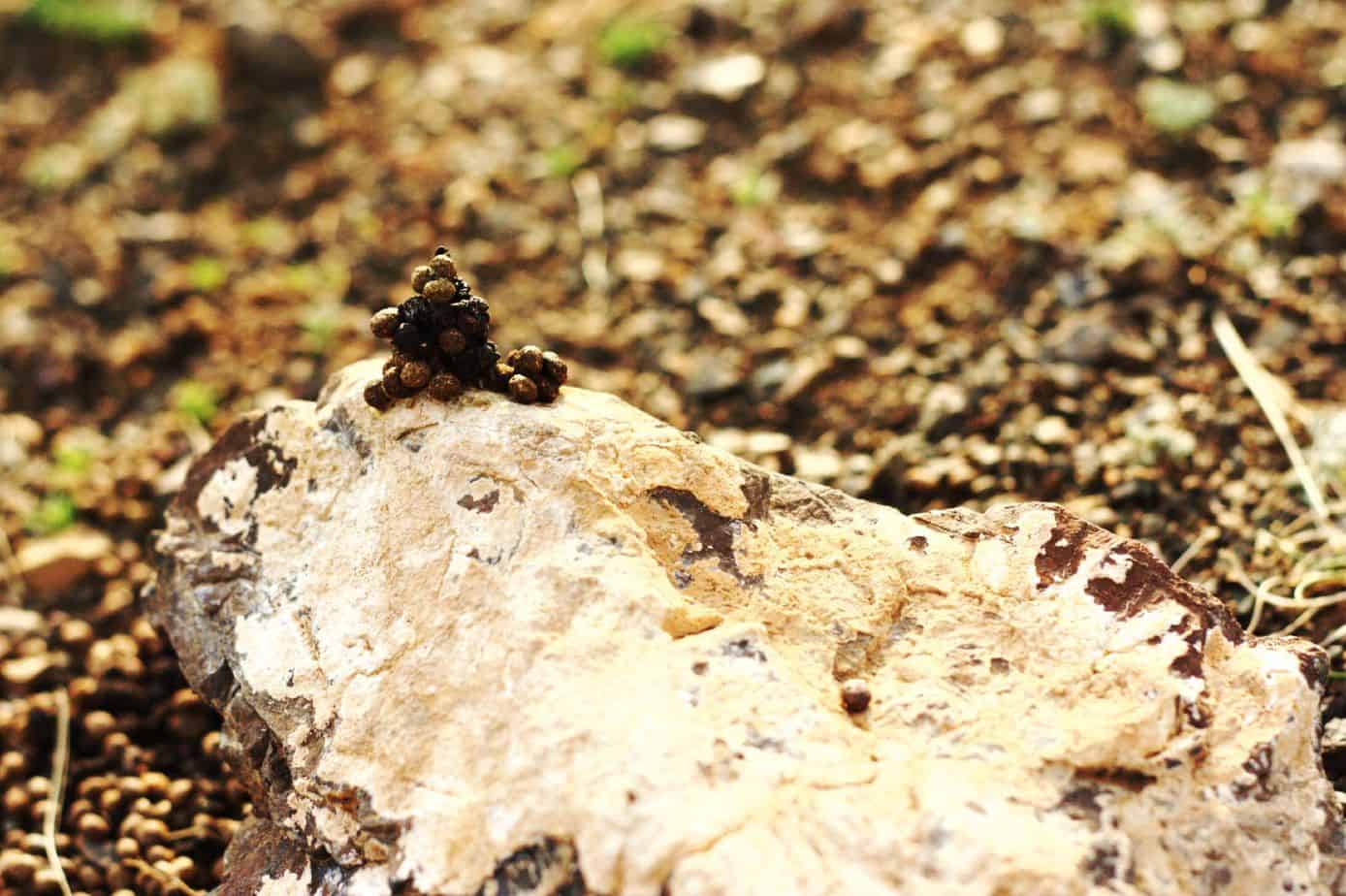
Chipmunk droppings vs. mouse droppings
It looks similar to rat’s droppings. But it is not. Rat’s feces are bigger than chipmunk’s. They are also thicker than chipmunk turds. Unlike rats, these rodents rarely poop outside their dwelling.
Mice and chipmunks have similar feces. You have to look closely to notice the difference. Chipmunks have a paler color of poop compared to mice.
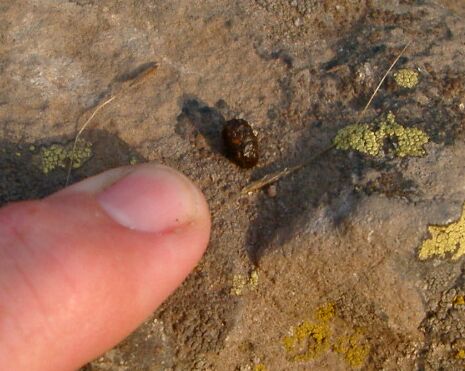
Chipmunk scat dangers
Did you know that chipmunk poop is just as dangerous as any other omnivore or carnivore scat? Due to their unpredictable diet of scavenging, chipmunk feces may contain a high number of harmful viruses and bacteria. Be cautious around these cute little critters!
Humans rarely contact directly with this scat, so it is highly unlikely you will get infected. Unless you or your pets touch it. You can receive diseases transmitted by chipmunks from their poop:
- Leptospirosis spreads through airborne dust. It is a bacterial disease;
- Salmonellosis – not fatal, but fever, diarrhea, cramps, and nausea can last for up to 7 days;
- Hantavirus is incredibly contagious. It spreads through inhaling particles with saliva, urine, and droppings of chipmunks.
How to clean chipmunk feces
Once chipmunk poop identification is over, and you know what you withstand, you need to clean the territory.
Follow these simple steps:
- Wear protective gloves and respirator;
- Inspect the poop with a stick to make sure that it is dry or not. Sprinkle dry poop with water;
- Torch the poop in the place unreachable for others;
- Spray disinfectants on the spot where you have found the poop.
[su_note note_color=”#e5e2d4″]Related post: Recommended chipmunk poisons [/su_note]
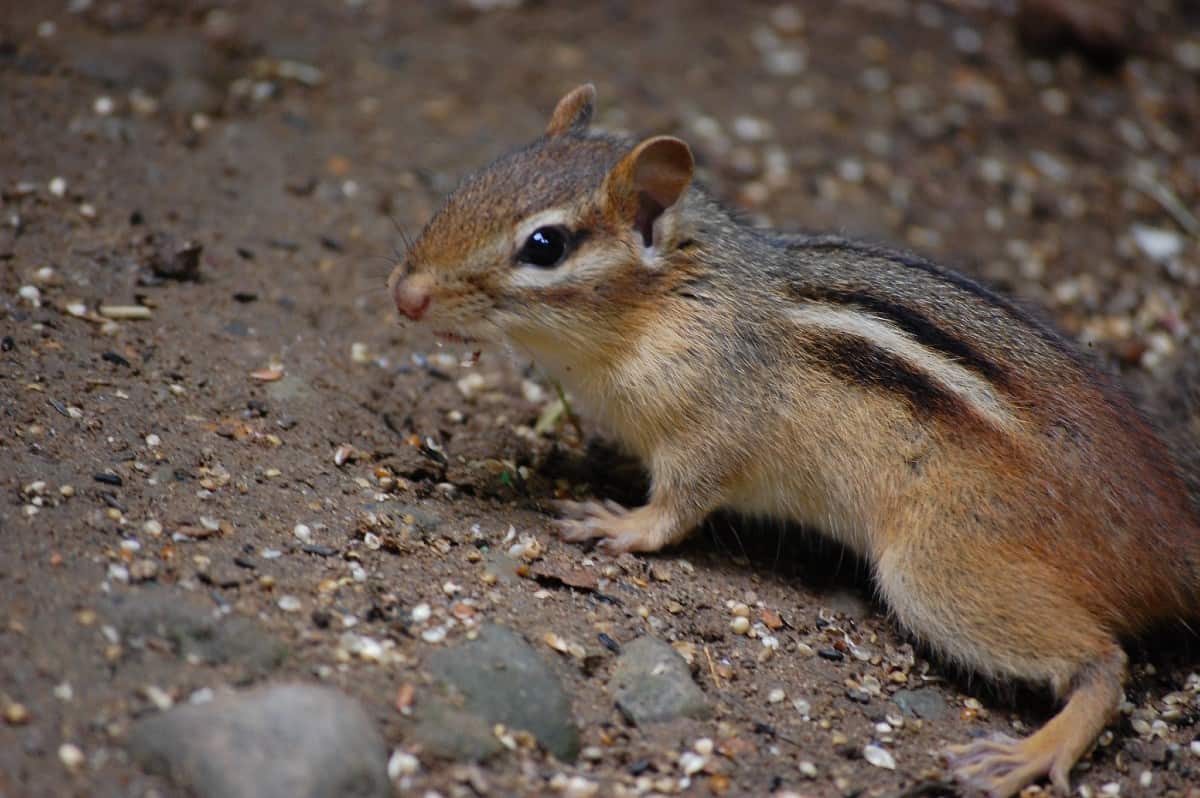
Is it an infestation?
It may be an infestation, as usually chipmunks don’t leave their feces anywhere except in their burrows. You may notice it on chipmunk feces pics. Check out for other signs:
- The freshness of the poop. The fresher it is, the closer chipmunks have built the nest;
- The quantity of poop. You may find the latrine site of chipmunks. If it is, look for possible burrows.
FAQ on Chipmunk Droppings
How much poop does a chipmunk poop at a time?
It depends on the amount of food chipmunk ate. Usually, it is up to 2-3 pellets. If you find latrine, you will see more poops.
What color is chipmunk poop?
It depends on the food chipmunk ate. It can be black or brown. More veggies make it paler.
[su_note note_color=”#e5e2d4″]Related post: Recommended chipmunk repellents [/su_note]
How can you tell the difference between chipmunk poop and rat and mice poop?
Chipmunk’s poop is bigger than mice and paler. It is also thinner and smaller than rat’s feces. They have similar forms. Still, poop identification will not be a problem when it comes to these species.
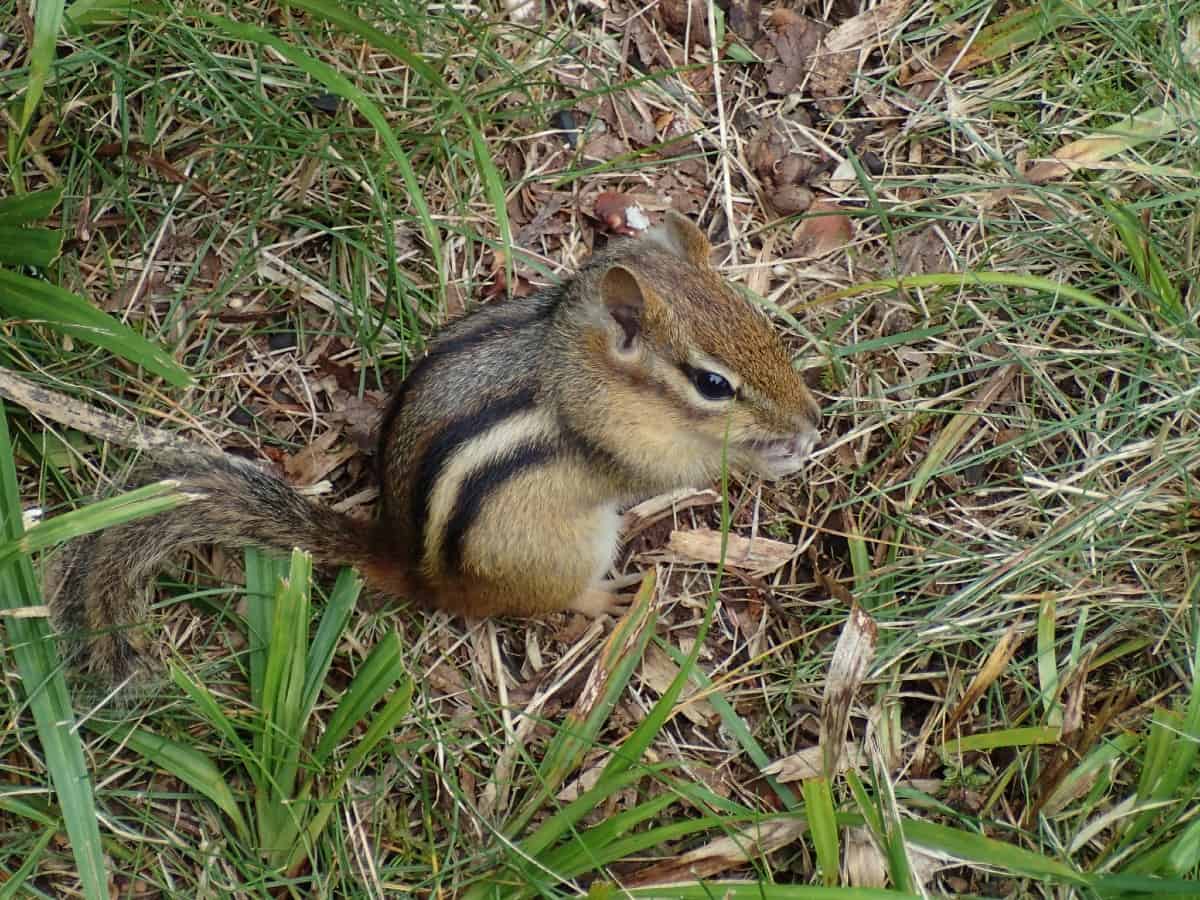
Dealing With the Problem of Chipmunk Droppings
The closer you see droppings of these rodents to your house, the more concerned you have to be. Perhaps it is time to set chipmunk traps or scare them away with other actions. Chipmunks are dangerous for your garden and the harvest you want to gather.
They don’t poop anywhere outside the burrow as they are afraid of other animals to find them by the smell. If chipmunks poop in your yard, it is possible that they consider it their home. If you have or had problems with chipmunks, share your story in the comments below. How did you act when you noticed their poop?
References:
- Diseases directly transmitted by rodents (Centers for Disease Control and Prevention):
https://www.cdc.gov/rodents/diseases/direct.html - Hantavirus Disease (New York State):
https://www.health.ny.gov/diseases/communicable/hantavirus/fact_sheet.htm

